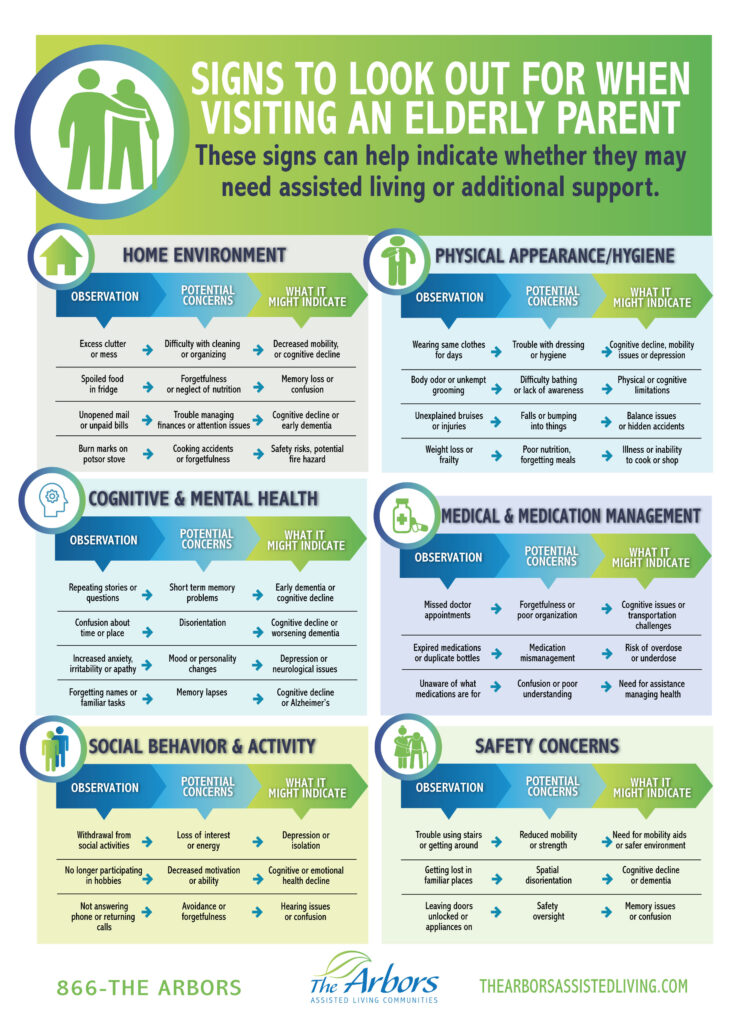If you’re a long distance caregiver, you may be planning a visit to check in on your aging loved ones. This visit is, perhaps, the first opportunity in several months that you’ll have to personally observe them.
If you’ve relied on regular telephone conversations and assessments by other closer-living relatives to gauge their well being, the upcoming holiday visit may be revealing. Absence – even for a short period – often allows us to observe a situation through new eyes.
Keep a close eye on the following areas during each visit:
Physical Changes
Is Mom losing or gaining weight? Is she sleeping too much? Is she sleeping too little? How is her balance? Is she walking with any discomfort, or is she unsteady on her feet? (Note: certain medications can cause joint or muscle issues.) When there are concerns, make sure they are addressed with her primary care doctor. If you notice any sudden odd behavior, quickly check with her doctor to see if it is a urinary tract infection (UTI); very prevalent in elders and easily resolved with antibiotics.
Emotional Well-Being
Take notice of whether she is still engaged in her normal routines, such as grocery shopping, preparing meals, basic housekeeping, reading the newspaper and personal hygiene. Is she still socially engaged with friends and family? Still going to church on Sunday? Still seeing the hairdresser on Friday? Once there are obvious signs of decline in these daily activities, it is time to seek assistance.
Medications
Like many elders, parents may not like medications. Check for expired and unused prescription bottles strewn throughout the house. When on a doctor’s visit get an updated medications list and post a copy on her fridge and in her wallet. This may be difficult to oversee from a distance.
Home Environment
Take a look to see if and when the bills are getting paid. If you find bills unopened, or tucked between sofa cushions, it is time to step in and help. Also pay close attention to the stove being shut off. When mom keeps leaving it on, it is time to disconnect it.
Steps to take:
If you see a pattern of decline in your loved one, but you’re not sure where to start, I suggest beginning the initial conversation by mentioning what concerns you have, as well as the measures you can take to make things better.
We want to be your resource at The Arbors. Whether you are looking into assisted living, social model day program or home care we will help find an option for your loved one. Please call us and we can find what works best for you and your loved one.
Download our Free Guide for Signs to Look Out For When Visiting An Elderly Parent

If you’re interested in learning more, or visiting The Arbors Assisted Living community, schedule a tour by contacting one of our five convenient locations:
Bohemia
Hauppauge
Islandia East
Islandia West
Westbury